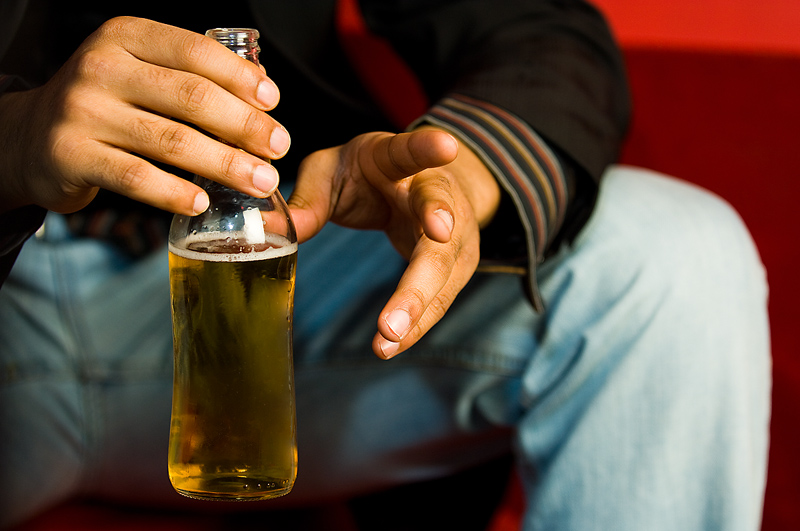
MONDAY, March 3, 2014 (HealthDay News) — Binge drinking may shorten your life, even if your drinking is considered moderate overall, new research indicates.
Many studies of moderate drinking have delved into how it affects health and mortality, but most haven’t looked at patterns of drinking, explained study author Charles Holahan, a professor of psychology at the University of Texas at Austin.
When Holahan and colleagues examined drinking styles of moderate drinkers — for example, if they spread their alcohol consumption out more evenly over time or if they imbibed less often but in heavier amounts — they discovered death rates were higher in binge drinkers.
“Among older moderate drinkers, we found that those who binge have double the odds of dying within the next 20 years compared to those who do not binge,” Holahan said.
The researchers analyzed data from a larger study, focusing on 446 adults between the ages of 55 and 65 who were moderate drinkers. For male participants, that meant they downed no more than four alcoholic beverages a day and no more than 14 drinks per week. For women, it meant they drank no more than three drinks in a single day and no more than seven per week — the definition for moderate or “low-risk” drinking, according to the U.S. National Institute on Alcohol Abuse and Alcoholism.
Of the total group, the scientists said 372 moderate drinkers spread their drinking out over time, while 74 showed periodic episodes of heavy drinking.
The researchers also factored in socioeconomic issues such as gender and marriage status, and recent health issues including diabetes, heart problems, obesity and physical activity levels. To track deaths, they relied on death certificates.
Holahan said while regular moderate drinking, such as sipping a glass of wine with dinner, may offer health perks for some people, binge drinking is always unhealthy.
“Heavy episodic drinking concentrates alcohol’s toxicity and is linked to mortality by damaging body organs,” said Holahan, who added that it could also increase the risk of accidents.
While the study found an association between binge drinking in moderate drinkers and a higher risk of death, it did not establish a cause-and-effect relationship.
Holahan said because the study was observational, the authors can’t be sure that other factors weren’t influencing the findings.
Another expert said the study helps offer a clearer look at the behaviors people use to consume alcohol.
One drawback of the study, however, is that it relies mostly on self-reporting, added Dr. Scott Krakower, assistant unit chief of psychiatry at Zucker Hillside Hospital in Glen Oaks, N.Y.
“In the future, they could potentially rely on other reports from family members, for example, to help give a better assessment. However, standardizing this may be difficult,” he said.
The new research appeared online March 3 in Alcoholism: Clinical & Experimental Research.
About 25 percent of moderate drinkers report binge-drinking habits, alcohol researcher Dr. Timothy Naimi, an associate professor with Boston University Schools of Medicine and Public Health, said in a journal news release. He said excessive alcohol use causes about 80,000 deaths in the United States every year, and that how you drink is as important as how much you drink.
“Many of these deaths are among youth and young and working-age adults,” Naimi said.
College students are very susceptible and often do not think they can get hurt, said Krakower at Zucker Hillside. He recommended that they put a plan in place before they go out if they know they’re at risk for binge drinking. Strategies could include never going out alone to drink, bringing along responsible friends who can help stop you from overdrinking, and trying not to start drinking at all.
He said baby boomers are susceptible, too. “As baby boomers age onward, they are pretty vulnerable. Alcohol use can result in worsening medical complications that come with aging, and it has especially lethal consequences if combined with certain medications, such as sleeping medications,” he said.
Research has started to examine the effects of binge drinking on cardiac health, Krakower said, and it may coexist with other factors, such as socioeconomic stressors, mental illness, tobacco use and obesity. But he said a good health care provider can help people address all of these issues along with the alcohol abuse.
If family or friends are worried about a loved one’s binging habit, Krakower said they should reach out for help. He recommended attending local meetings of Alcoholics Anonymous, looking into an addiction treatment program, or talking with a family physician about the best options.
“If you can, maintain a nonjudgmental stance but be supportive of the process of getting them help,” he said.
“The human body is resilient,” Krakower reassured, “But make sure to seek treatment before it is too late.”
More information
To learn more about binge drinking, visit the U.S. National Institute on Alcohol Abuse and Alcoholism.
Copyright © 2026 HealthDay. All rights reserved.

